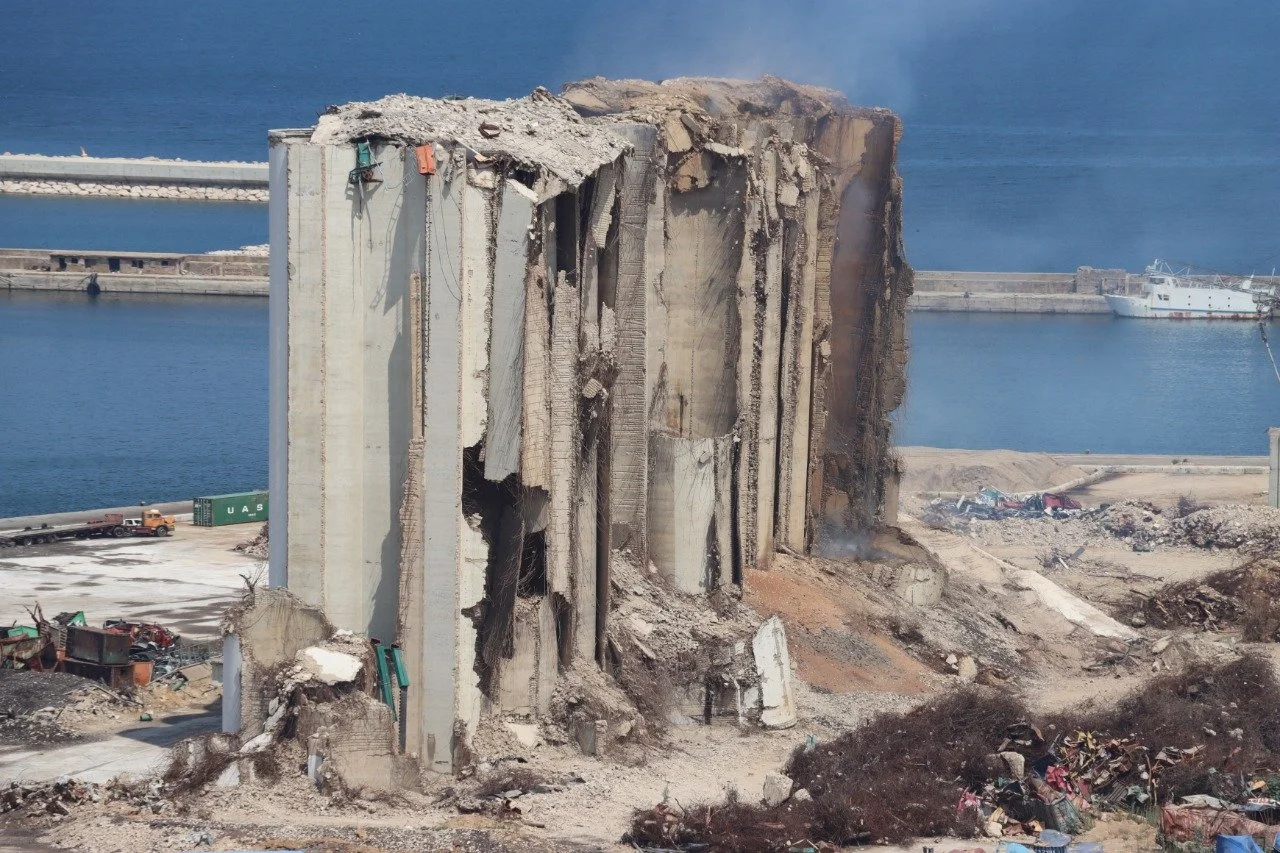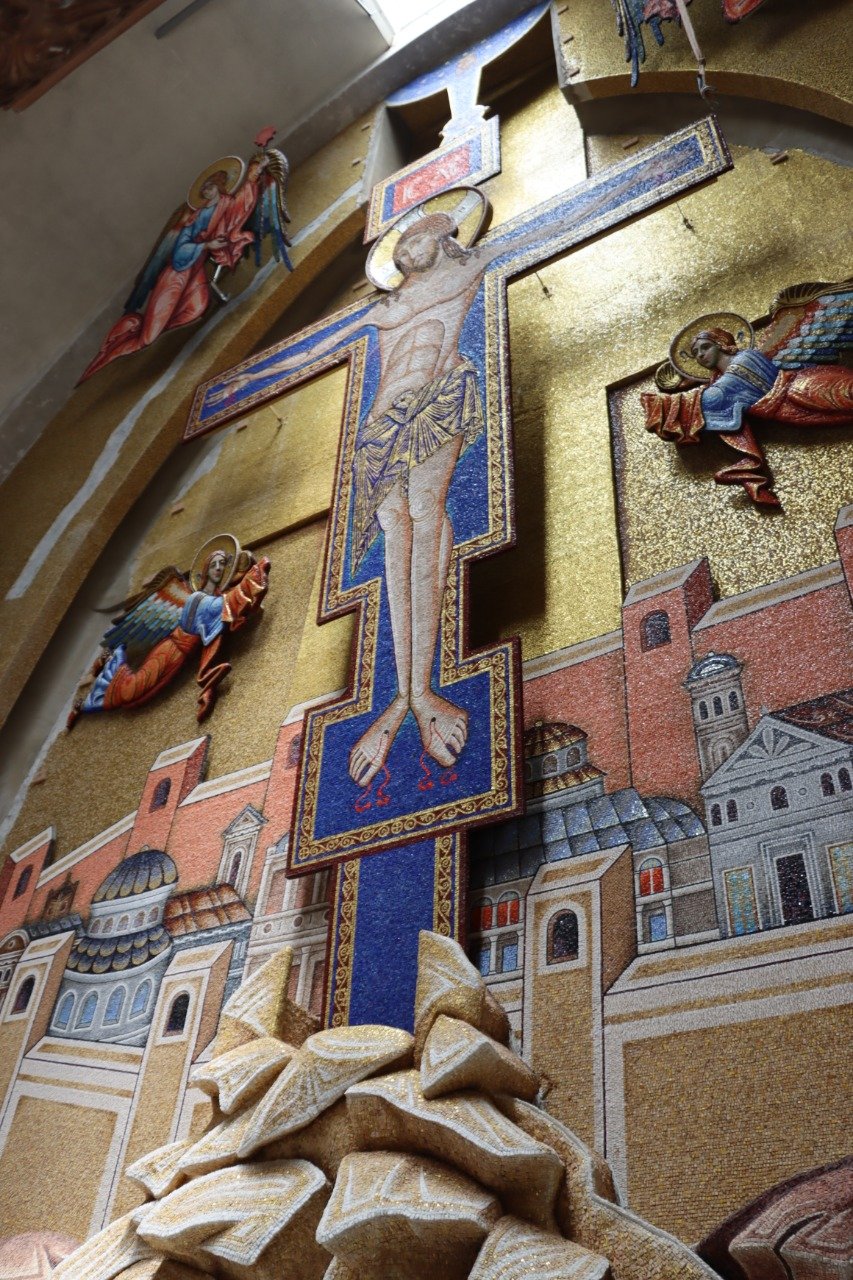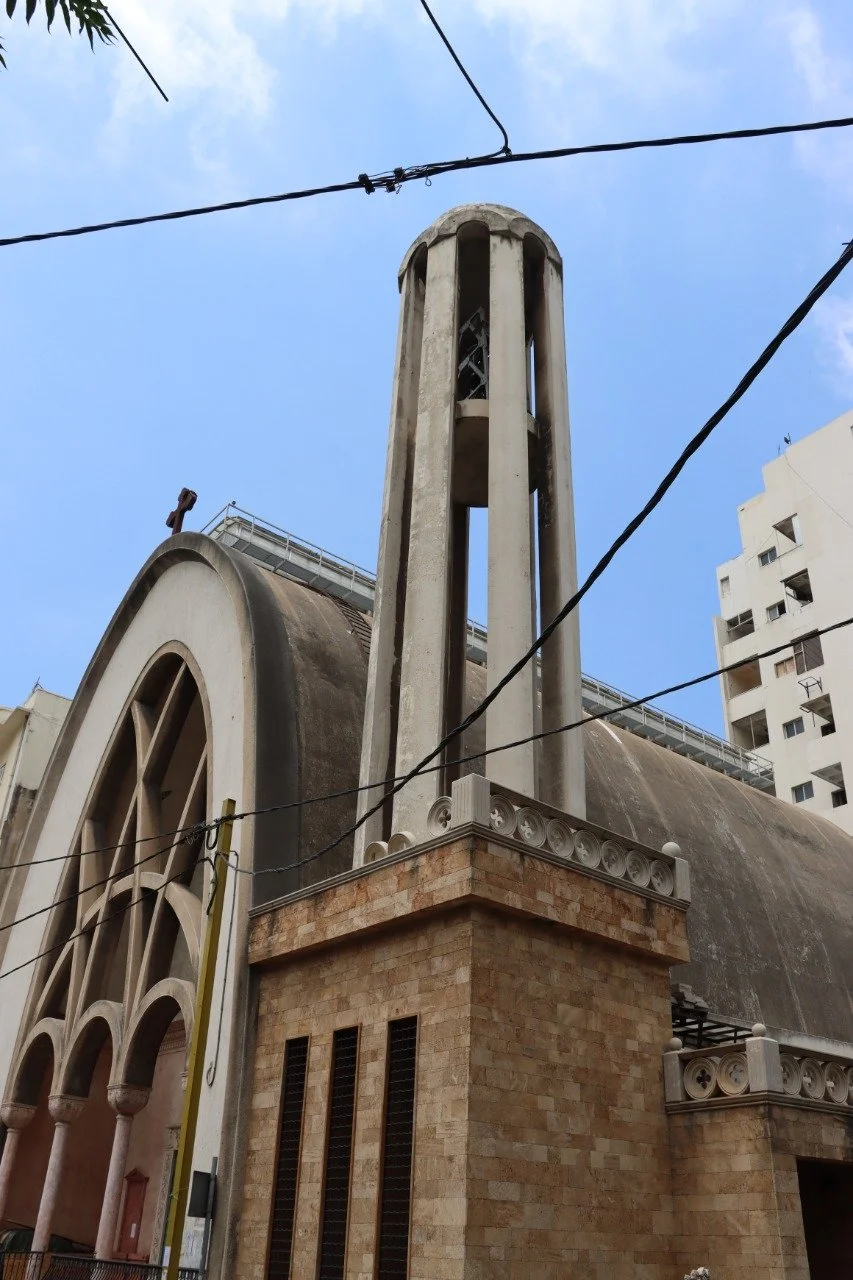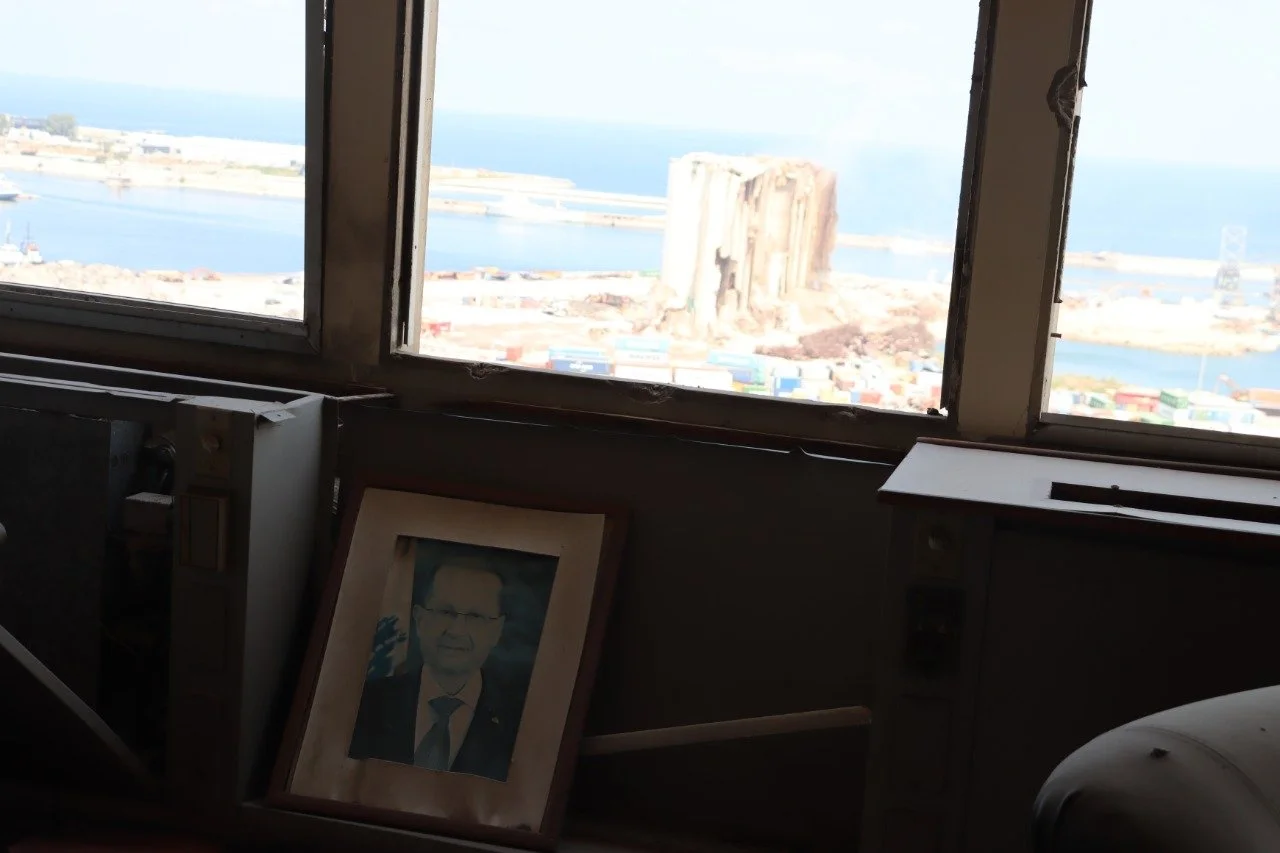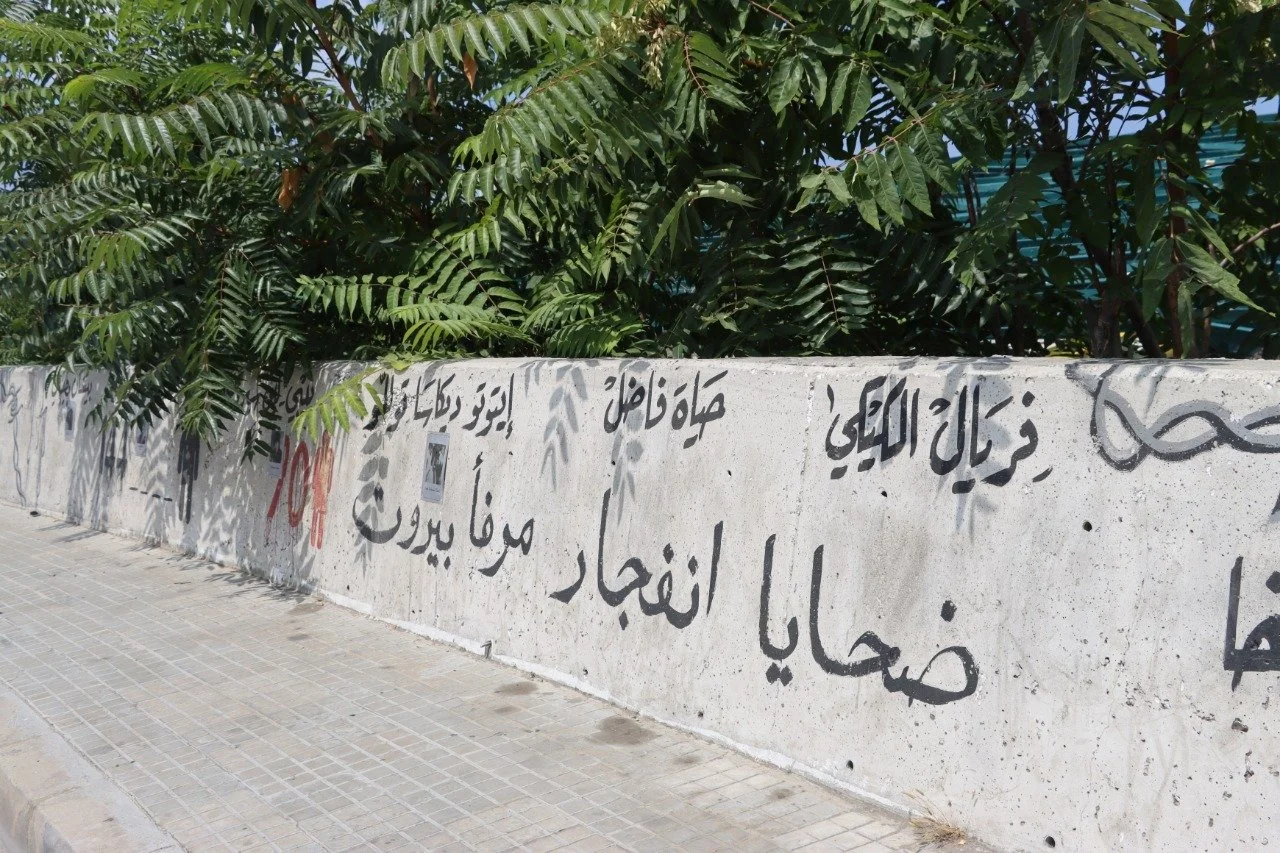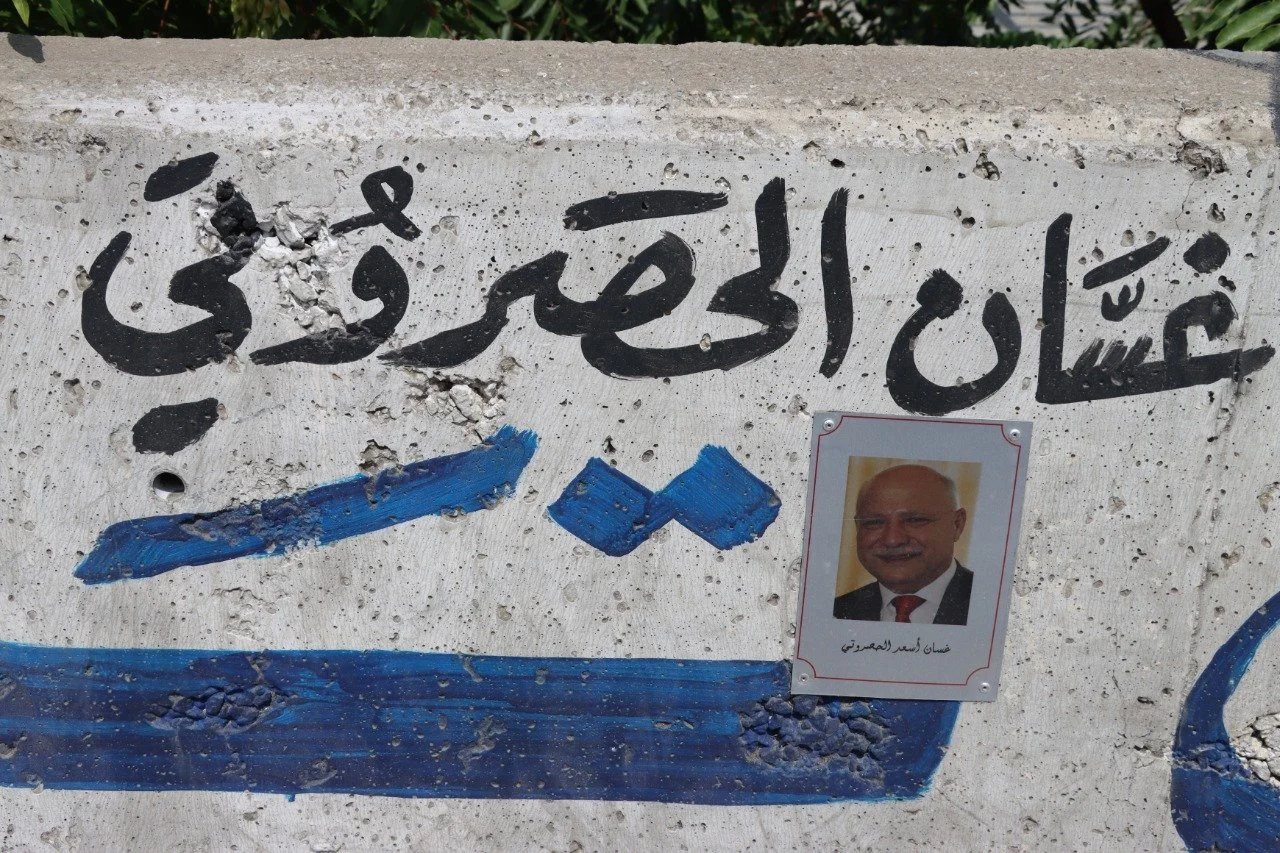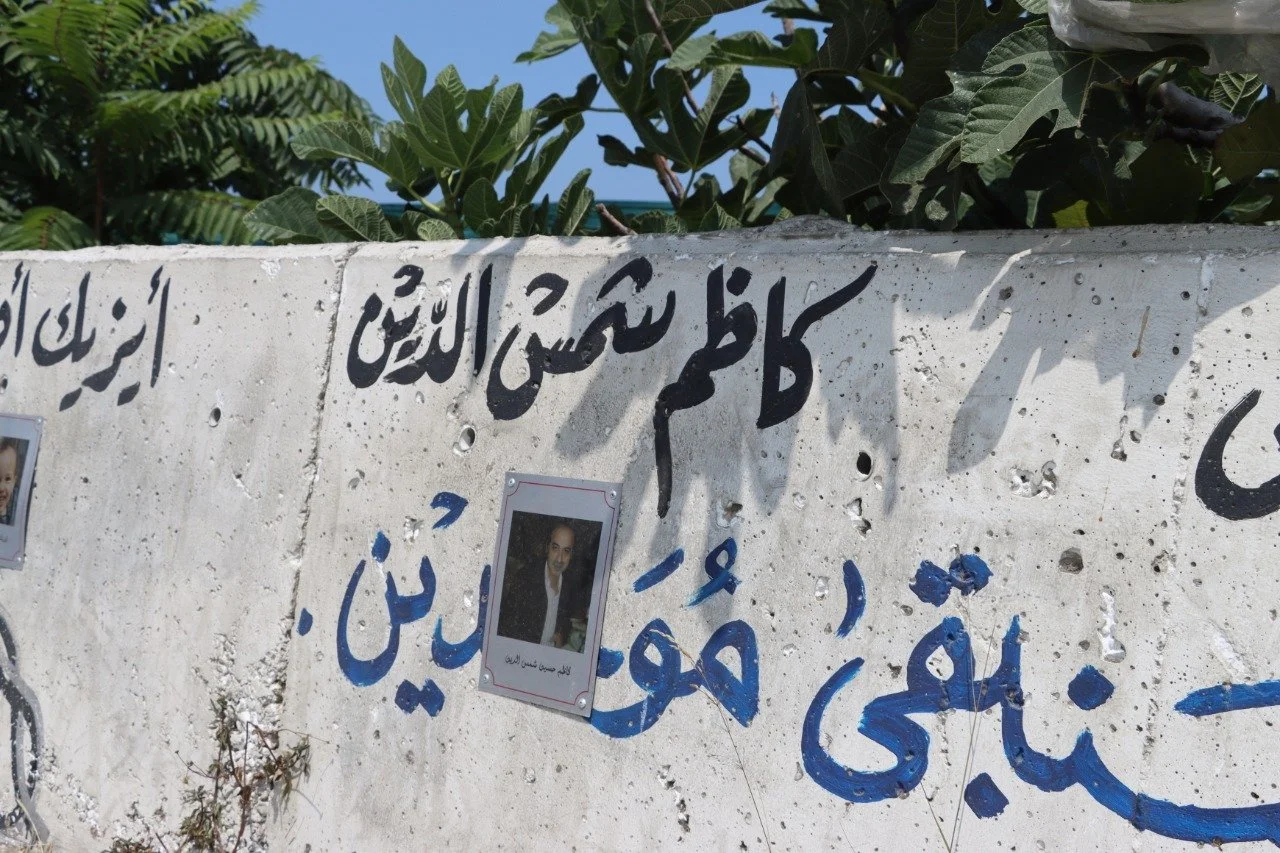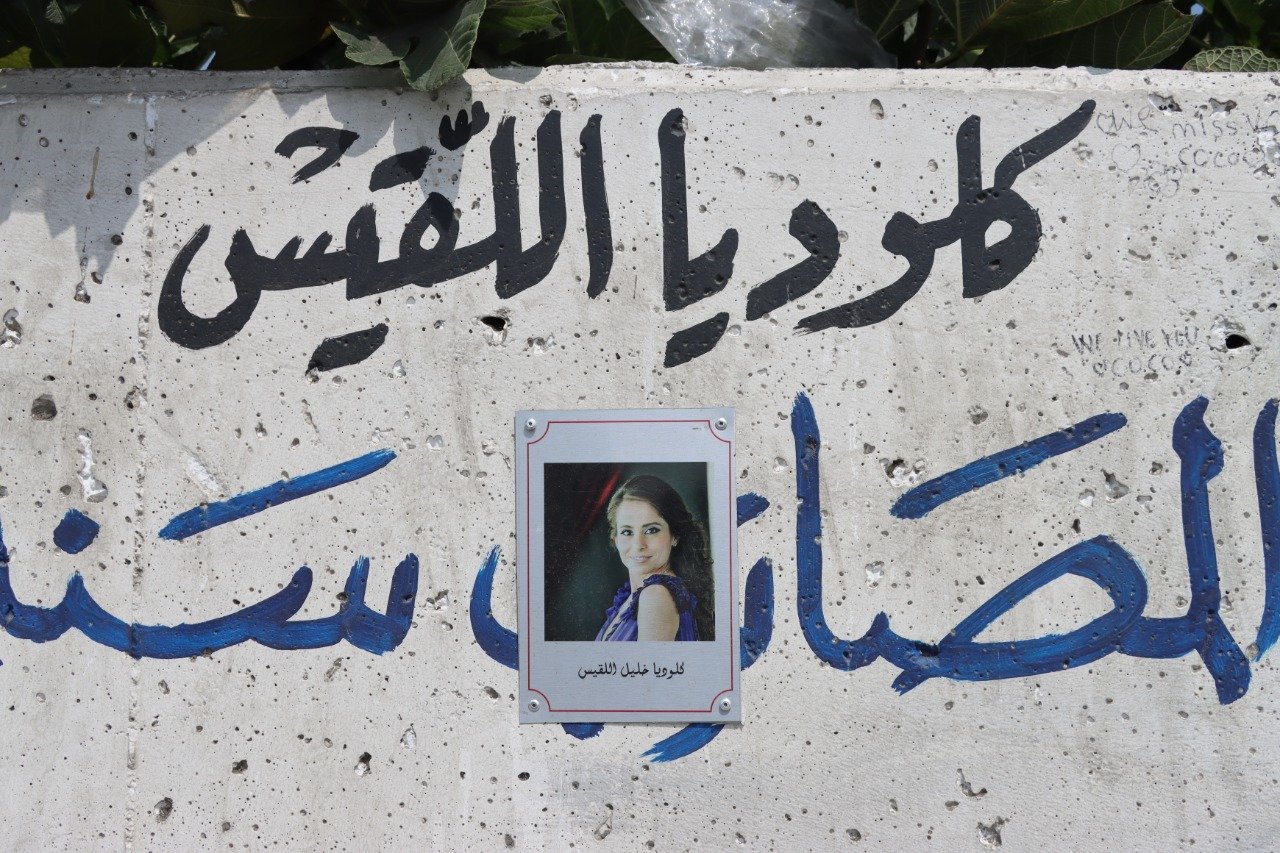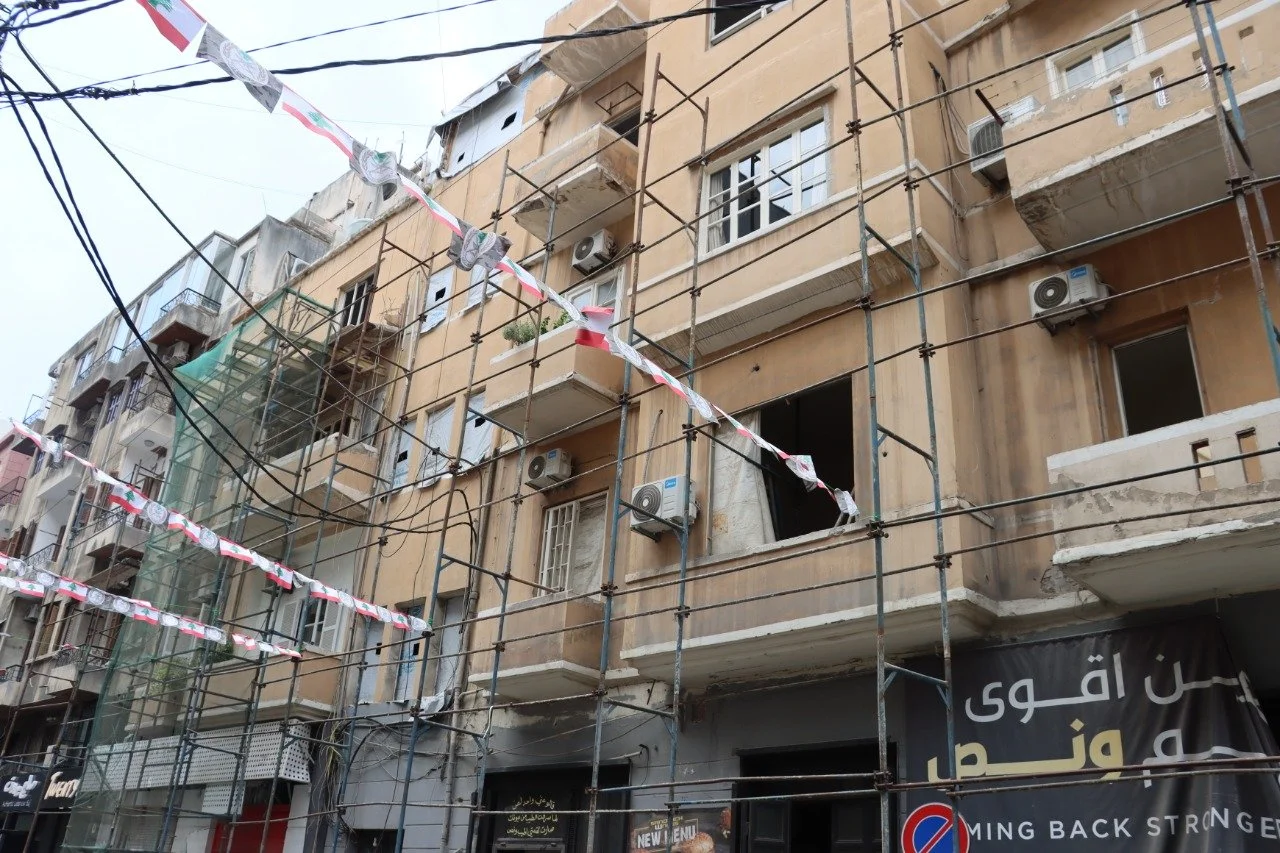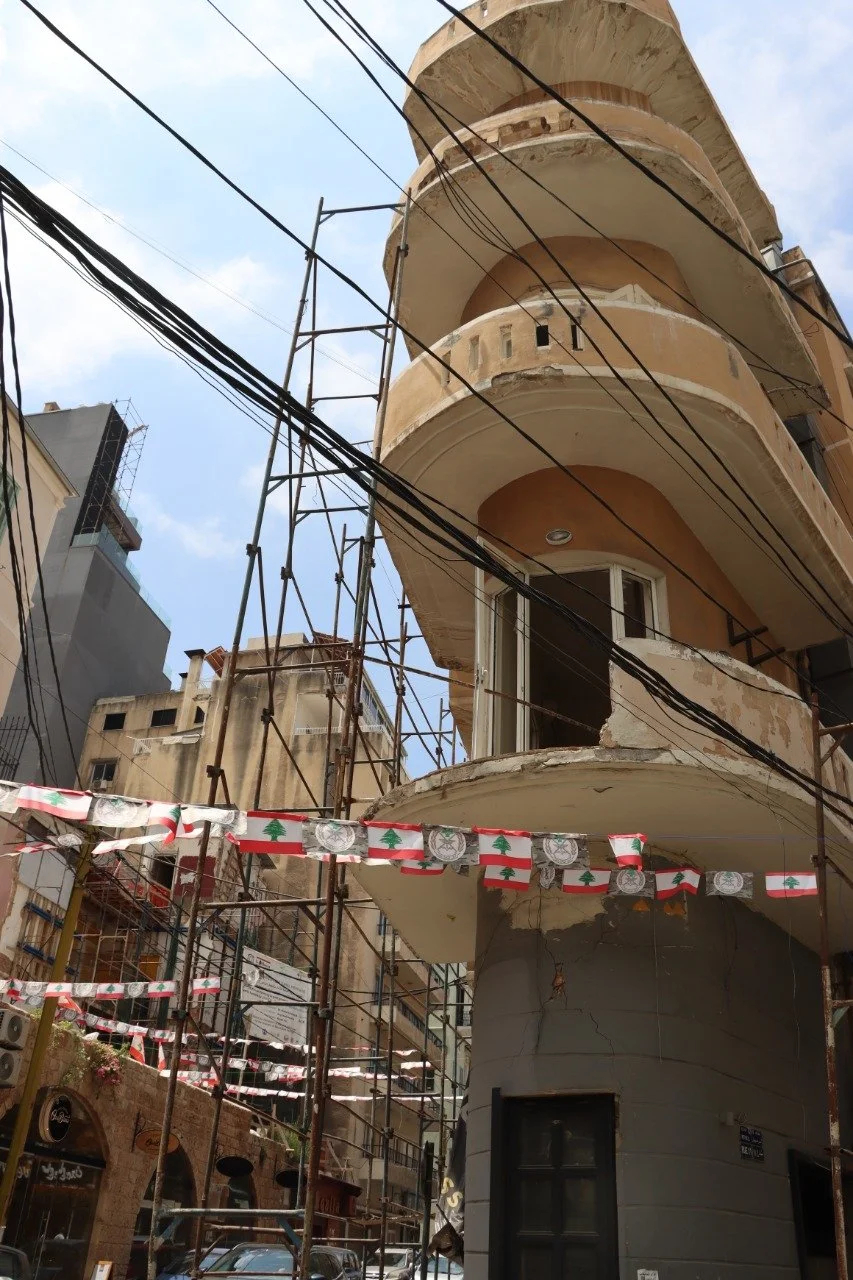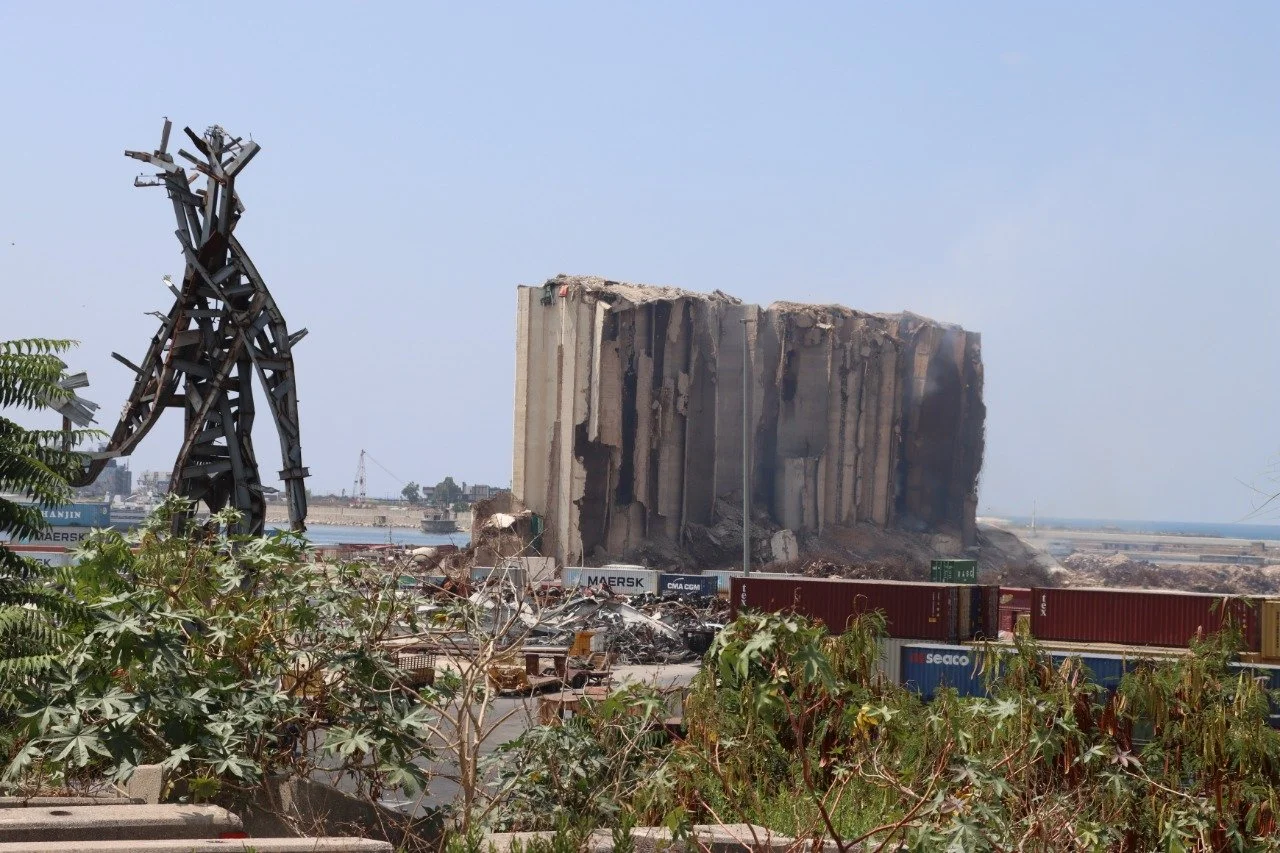Since August 4, 2020
Two Years of Death, Destruction and Pain Everywhere in Beirut...
But
Here the Will of Life Is Stronger
August 4... a date that made history. A day which would have been normal if the clock hadn’t stopped at 6:07 p.m. The moment of the catastrophe, the Beirut Port Blast disaster. An earthquake that turned the lives of the Lebanese upside down.
More than 230 victims, 3000 wounded, thousands of displaced people and affected physically, psychologically and financially...
Two years after Hiroshima Beirut, and the wound of the Lebanese has not healed. Even the truth of what happened on that fateful day is not yet discovered, especially that the Blast investigations are paralyzed. However, justice will reveal one day, and the right time will come, for we are the children of hope and Resurrection.
Two years after the Port disaster, what has changed at the crime scene? Are the Beirutis still clinging to hope? How does Beirut look today? Did the pulse return to its heart?
In fact, answers are found on the field, in the neighborhoods of the wounded capital. Its children are observing daily the Port Silos’ sadness, the silent witness of the tragedy, which is now threatened with complete collapse, especially after the fall of two silos due to the fires that broke out in it since weeks ago.
Gemmayzeh and Mar Mikhael are the two closest areas to the Beirut Port silos. We headed there, where the pain was deep, and searched for a glimmer of hope amidst all the life’s troubles.
The tour began in St. Anthony Church for the Melkite Greek Catholic, which is the neighbor of the Port and the safe haven for the people of the region. It resisted and remained strong, raising its dome towards the sky, despite all the severe damage it faced. Today, the Church spreads a new light after the rehabilitation and restoration works, as if we are now in a heavenly kingdom far from the city’s noise.
Continuous Fear
Mrs. Moni Bali
Inside the church, we met Mrs. Moni Bali. She was cleaning the place with a smile that did not leave her face. She is one of the Blast’s victims, and she is still suffering from her injury to this day.
She said, “On the day of the Blast, we felt an earthquake, as if the capital had been bombarded, I saw the buildings collapsed, and I fell from the second floor to the first one.”
Mrs. Moni added, "I fainted and then found my hand cut off. The trip to the hospitals was not easy, till I arrived at 11 p.m. to hospital that wouldn’t receive me for I didn’t have the 7 000$ needed amount.... As for my house, it was destructed, and we tried to rehabilitated with little bit of help. Here in the Church, we witness massive destruction, but everyone helped to restore it, but after two years it is still damaged.”
She continued, "This is a fateful day, I don't like it. Why do I seem to have a physical disability in my end of life? I lost my hand, all the doctors are saying there is no hope anymore, and the operations I should are so expensive. Nothing has changed and we are still begging, especially that life essentials are very expensive. Every time I see the Port or I know that anything could happen, I feel terrified, noting that I’m already taking medicines for nerves pain. Hoping to see God’s face before death!”
Hope in Jesus
Mr. Aziz Salloum
With Ms. Moni, the Church’s servant, we met one of the choir members, Mr. Aziz Salloum, who described the first moments of the disaster in his home in Mar Mikhael, and said, “The ground shook and the explosion occurred. The Blast power was big; thus, I hit the ceiling and became full of dust. As for my daughter, she was injured and I had a problem with pronunciation. My wife survived death after everything fell to her.”
He also said, "we are still begging and asking for help. I’m at the choir and I take care of the Church. When I sing to Christ, I forget everything happened with us, I live in the mood of chanting. After two years, nothing has changed, sadness is increasing, and aid stopped. I can’t forget the Blast’s scene. I only have hope in Jesus, who is the savior. Lebanon can only witness a miracle from our Lord who saves us. Oh Lord, save us from the bitter days!”
Irreparable Loss
Outside the church, we return to life in the city, where the colors also returned to the neighborhoods of Gemmayzeh and Mar Mikhael. Some of the buildings were restored, with hope to embrace again their habitants who were displaced from the area after the Blast. Some of the old buildings are still destroyed and can’t be restored. Trees from here and there surround the shops and restaurants that have been renovated to receive Lebanese and tourists.
Mr. Roy Al Hayek
However, the residents of the area and the owners of these shops are still drowned in despair. In fact, the explosion united their tragedy, and sadness is still visible on their faces. Mr. Roy Al Hayek owns a music store in Mar Mikhael, he said, "I left the shop before the Blast. When the explosion occurred, I went back to check the shop, especially that we faced many thieves in the neighborhood. I made a lot of efforts for the rehabilitation of the shop.”
As for the damages, he added, "The loss is irreparable. Many old musical machines have been broken as well as vinyl discs and rare machines. I lived the war, and I didn’t see such destruction in my whole life, I can’t forget the people who were full of blood. What happened wasn’t easy, and nobody is fine. I can’t listen to music anymore. I always think how I want to finish the shop’s restoration.”
He continued, "After two years, poverty has increased. Lot of people have not returned to their homes. I still have hope in Lebanon and I don’t want to leave it. Lebanon is the country of Saints.”
Psychological Suffering
From his end, the manager of one of the home appliances store said, "I was a bank manager, and when I retired, I started to take care of this shop, owned by my sister's children. On the day of the Blast, I was here, but I had to go earlier because there was no extra work. When the explosion occurred, we thought that war will begin, so we went to the shelter. Then we went back to the shop which have been destroyed. A lot of thefts were in the neighborhood.”
Two years after the Blast, he said, "I had nerves problems and every day I take medicine." He recalled some memories, "Every day I used to come to the store and invite the neighbors and who were passing for coffee outside the shop. We also used to play chess and had fun, and now we lost these moments.”
He continued, "This Blast is unforgettable. Some people are still seeing the Blast scene in their dreams. Sometimes I wake up at 1 or 2 a.m., very tired, so I pray and take stress pills. Then I take my care for a ride with windows opened, so I can rest a little. The majority of people are suffering psychologically. I lost hope.”
A Scene Like War
We continued our tour in the Beirut capital, which witnessed many stories and pain. We arrived at the Electricité du Liban company, which is directly in front of the Port. The destruction was massive and the building was like a skeleton that had suffered severe bleeding after the disaster.
At the entrance of this building, the caretaker greeted us while he was sadly contemplating Beirut’s silos. He recalled the victims and wounded people of the Electricity company, “The scene of the port is like a world war. There is nothing left for me to say, the country is destroyed. There is no hope anymore.” He denounced the difficult living conditions due to the worsening economic and banking crises that followed the explosion, "How can I live comfortably? I lost my money and I can help my son in his wedding.”
Heartbreak and Sadness
We entered the Electricité du Liban company, and the person in charge of the building’s maintenance accompanied us. We headed with him to the 13th floor, which is the highest. The effects of the massive destruction are still dominant even though 2 years has passed since the disaster. Rubble on the ground, dust everywhere, scattered electrical cords, scattered files, destroyed walls... A scene of horror in front of the port's silos, which started to die.
The person in charge of the building’s maintenance recalled the day of the tragedy, saying, “roads were full of dust, and wounded people were everywhere. Firstly, we did not know that we lost 3 victims, Marie Tawk, Zeina Chamoun and Claudia Lakkis, because it was difficult to enter the building.”
He added, "I’m working at the company since 1984, and I live here more than home. I’m really touched every time I see the Port and the destroyed building, which needs a lot of funding for rehabilitation, especially that the associations couldn’t help the company because it is a public institution. My office was in the seventh and was destroyed."
Regarding the employees, he continued, "After the explosion, they distributed the employees to different areas, because there was not enough space left to work here. The situation is dire and the mentality is very tired, especially since those who are still here are working in prefab offices.”
In the ninth floor, we had a look on the control screen of the electricity network in Lebanon, which was largely destroyed and has not yet been rehabilitated.
From the Electricité du Liban company, we finished our tour in Gemmayzeh. In this region, which has always been a place for joy, laughter and fun. Today, Gemmayzeh, as all the Beirut regions, is trying to restore hope, even with a small glimmer, in order to revive again, with safety and reassurance, that Lebanese are still searching for it.
But after darkness there is light, and a splendid sun must rise, carrying a heavenly justice and peace of mind on days that may be more peaceful. Therefore, our faith in the Lord Jesus Christ remains the strongest, for with God we are not afraid or troubled, and He is the One who said, “Take courage, it is I; do not be afraid” (Matthew 14:27).
Communication and Public Relations Department
Photos Credits: MECC Communication and Public Relations Department





